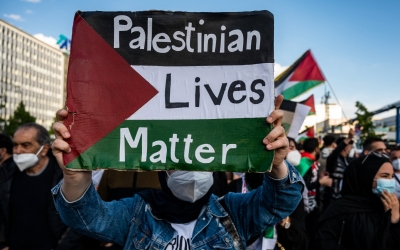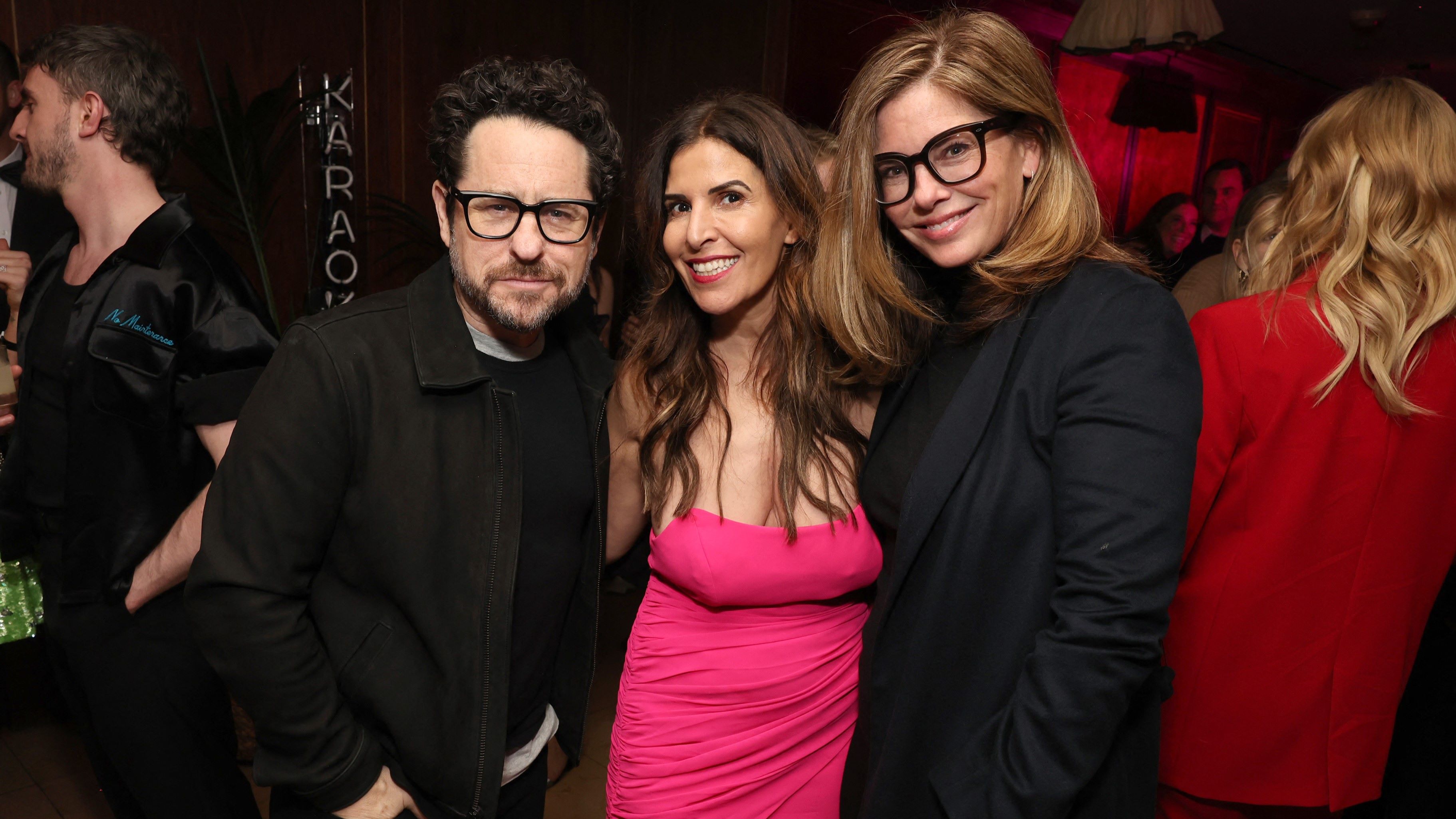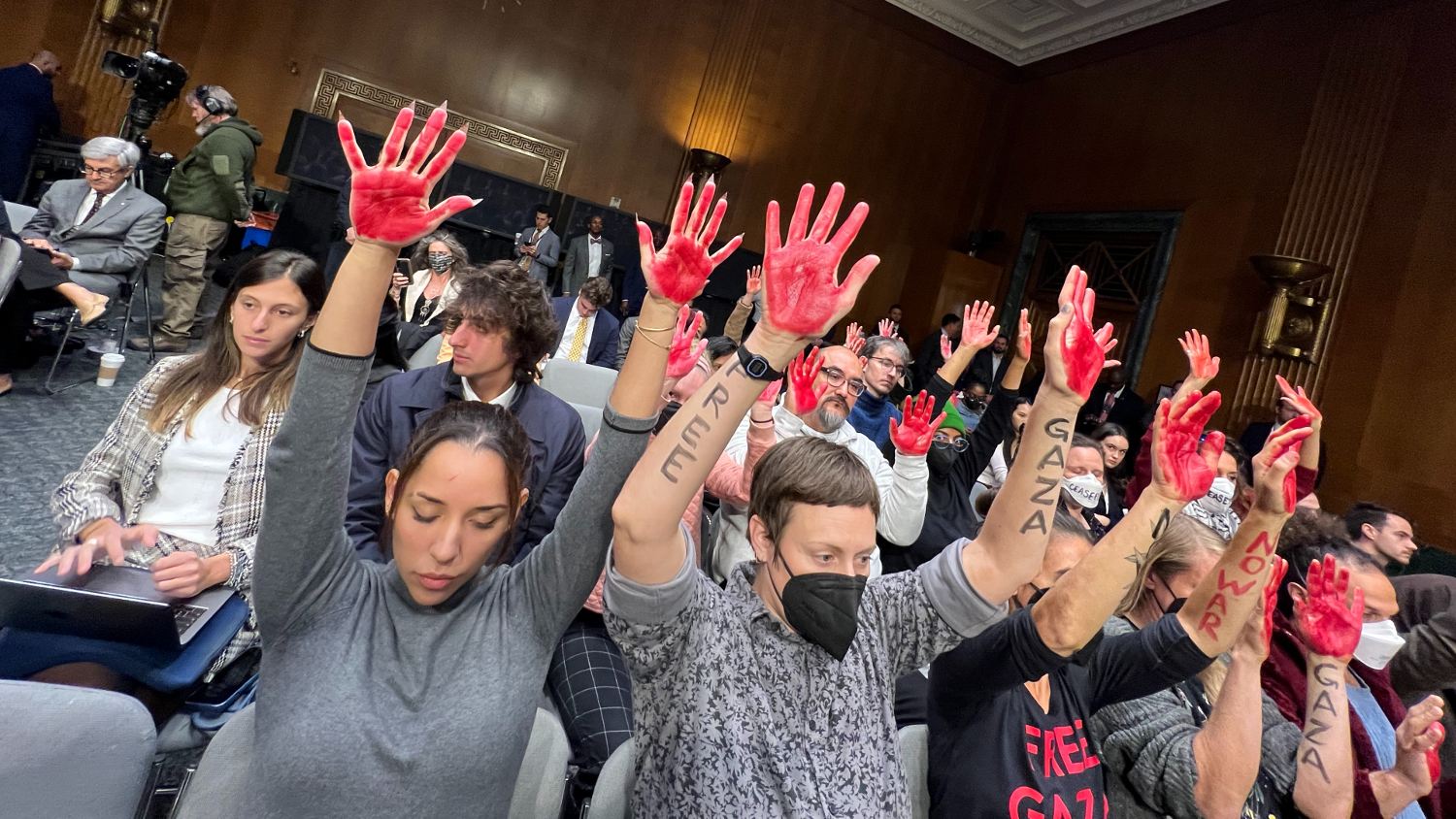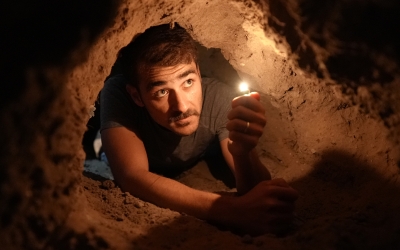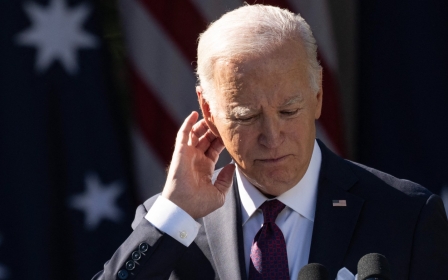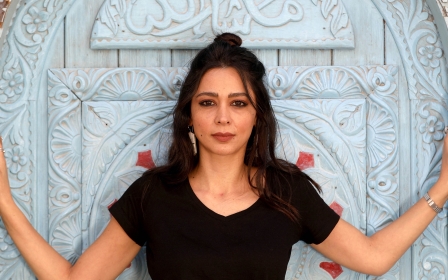'Shut up and fall in line': Israel, Palestine and the dawn of a new censorship in western art
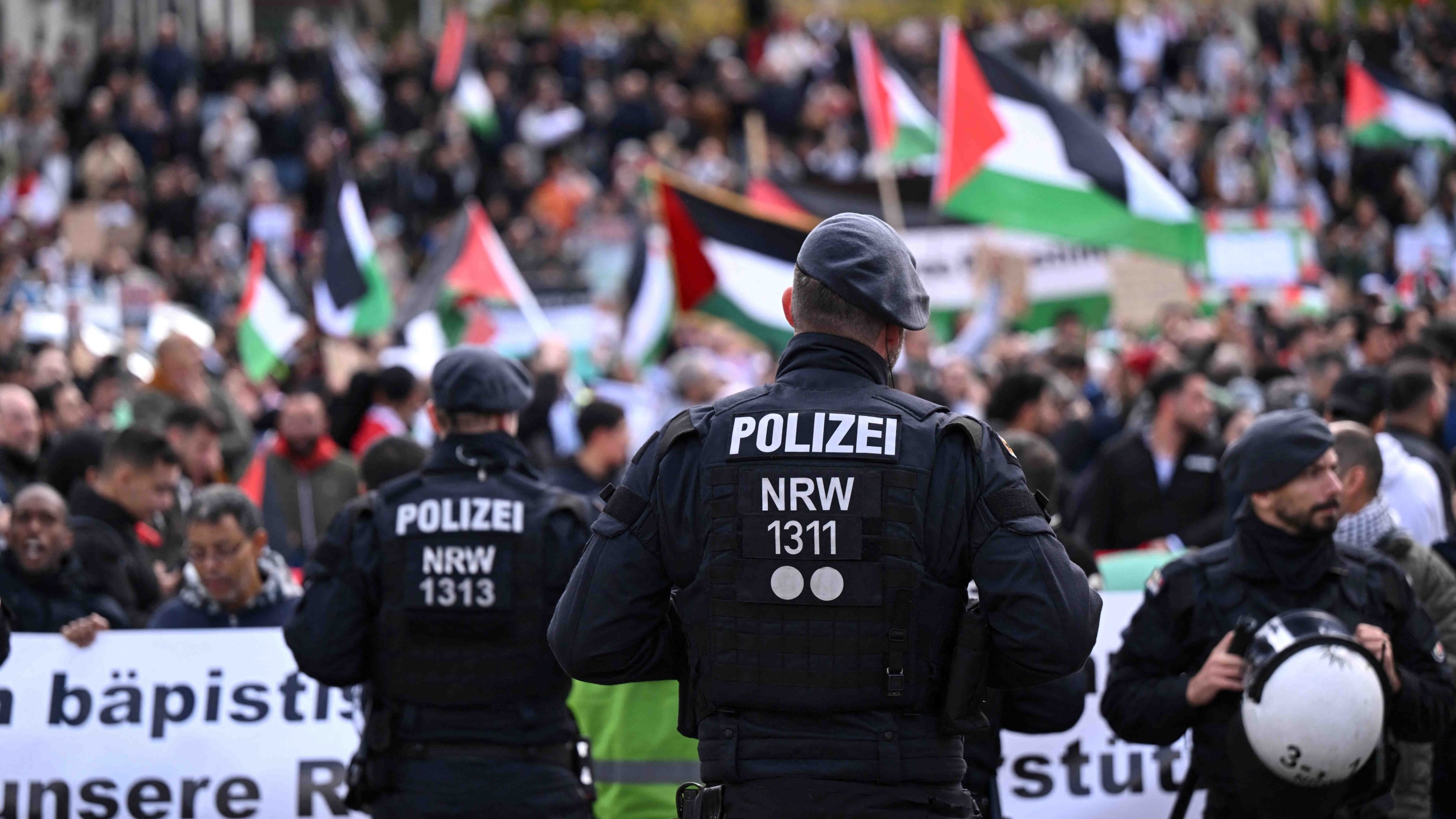
For any serious philosophy nerd, Jewish philosophy is indispensable for understanding the development of human knowledge.
For years, I’ve been obsessed with Philo of Alexandria, an early Jewish philosopher who treated the stories of scripture as allegories, avoiding the literal interpretation of the Torah common at the time.
As a youth, the writings of the first century BCE Hellenistic thinker were as revolutionary as the later medieval thinkers Thomas Aquinas and Averroes (Ibn Rushd), who similarly sought to reconcile Greek philosophy and faith.
Philo was a recurrent topic of discussion with an Israeli friend who left his home country to conduct a doctorate in Jewish theology in Germany.
My friend left Israel after giving up on the possibility of political reform in his country. As a theologian, he no longer felt affinity to the state of Israel and what it represented.
“Being Jewish and being Israeli are two independent identities that should not be conflated,” he would tell me.
My friend’s words have reverberated with me since 7 October.
The theologian was not surprised that a secular and staunchly pro-Palestine man like me could relate to the ideas of Jewish philosophers like Philo, Moses Mendelssohn and Spinoza.
Being influenced by such thinking is the opposite of supporting a state that has looted lands and unlawfully incarcerated and killed tens of thousands of Palestinians for more than 75 years. One that has treated us Arabs with nothing but insolence throughout its existence.
Follow Middle East Eye's live coverage for the latest on the Israel-Palestine war
“If Philo and Spinoza were alive,” my Jewish friend once told me, “they would’ve found it morally reprehensible to be committed Israelis.”
For the past few weeks, the world we inhabited has ceased to exist.
All the progress we made in film and culture have proven to be futile and illusionary. The dominant politics of diversity have transpired to be nothing but a phony marketing tool for business leaders eager to attract wider demographics.
The deliberate silencing of pro-Palestinian voices - Arab, western, and Jewish - in Europe and the US has woken us to a crude reality none of us, including this writer, had the courage to acknowledge.
Anti-Palestinian censorship
Over the past three weeks, various pro-Palestinian artists and writers had their engagements cancelled in Europe and the US.
Most prominently, the scheduled public discussion and award ceremony for Adania Shibli at the Frankfurt Book Fair was cancelled, as Juergen Boos, director of the fair, released a statement declaring that his organisation “stands with complete solidarity on the side of Israel”.
In Berlin, the leftist Maxim Gorki theatre scrapped a showing of Berlin-based Israeli playmaker Yael Ronen’s The Situation, attesting that “war is a great simplifier” and adding: "The terrorist attack of Hamas puts us on Israel’s side.”
The Social Democratic Party co-leader, Saskia Esken, refused to attend the German book launch for the Jewish-American senator Bernie Sanders for his criticism of Israel, while an employee at the Jewish Museum of Berlin was fired for describing Israeli rule of the occupied West Bank as “apartheid”.
“It's not even about freedom of expression,” the museum’s statement read, as it doubled down on the decision. “It's just about facts.”
In Italy, Egyptian activist and former political prisoner Patrick Zaki faced a backlash for calling Netanyahu a serial killer. A televised interview with prominent host Fabio Fazio was postponed but eventually did air on 22 October. He later had book promotion events in the city of Brescia cancelled.
Other far-right voices have additionally called for stripping Zaki of his honorary citizenship of Bologna.
In the UK, the Palestinian Festival of Literature was forced to cancel a book discussion for Jewish-American writer Nathan Thrall after pressure on the hosting venue by London’s Metropolitan Police.
Also in England, PalMusic UK’s 10-year anniversary concert was similarly advised to scrap its event for security reasons.
On the other side of the Atlantic, The Witness Palestine Film Festival in Rochester, New York, was pushed to cancel its physical edition and go virtual this year.
Pulitzer-winning Vietnamese-American author Viet Thanh Nguyen had a book reading cancelled for condemning Israel's "indiscriminate violence" against Palestinians, and science editor Michael Eisen was fired from academic journal eLife for sharing a satirical article from The Onion on Gaza.
Maha Dakhil, the Libyan-American co-chair of heavyweight talent agency CAA and representative of Tom Cruise and Natalie Portman, was forced to resign after describing Israeli actions in Gaza as a “genocide” on an Instagram post, which she later removed and apologised for.
The American Writers Guild of America has been slammed by pro-Israel commentators for its lack of public support for Israel.
American entertainment trade publications Variety and Hollywood Reporter meanwhile, interviewed a number of Israelis about the war.
All subjects unequivocally declared their support for the Israeli state. Not a single Arab talent has been interviewed thus far, and the thousands of Palestinian civilians who have been slaughtered by the Israeli war machine were never mentioned.
Palestinian lives, this coverage indicates, are not as valued as the Israelis.
In another recent episode of this epic McCarthy-like witchhunt, Artforum editor-in-chief, David Velasco, was sacked for publishing a petition signed by numerous artists including Nan Goldin that expressed solidarity with Palestinians and called for a ceasefire in Gaza.
Velasco was fired by the venerated magazine’s publishing mogul, Jay Penske, who also owns Variety, Rolling Stone, and Deadline Hollywood.
By contrast, there has not been a single case of censorship of pro-Israel views reported thus far.
A climate of fear
A handful of Hollywood celebrities, most notably John Cusack and Susan Sarandon, have valiantly expressed their full support for Palestine, but those are few and far between.
An open letter addressed to Joe Biden calling for a ceasefire and warning about the deteriorating humanitarian situation in Gaza has been signed by 55 Hollywood stars including Cate Blanchett, Channing Tatum, Jessica Chastain, Joaquin Phoenix, Kristen Stewart and Mahershala Ali amongst others. But the act of solidarity also felt like an exception from the rule.
Several friends working in media, film, and academia have told me they feel suffocated by the current climate.
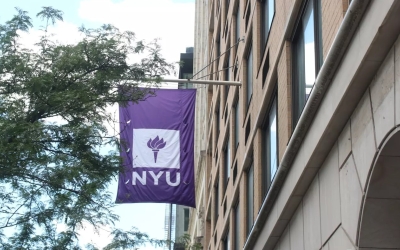
A white American writer friend in New York told me that “we're being told to shut up and fall in line.”
An academic Egyptian friend in Berlin expressed her fears of speaking out against Israel at the university she works in.
For Arab film producers in Germany, no funding for Palestinian-themed movies is expected in the near future. Across Europe, the Palestinian talents I’ve been speaking to are fearful that their nascent projects may not find backing.
The majority of Arab filmmakers, especially Palestinians, are heavily dependent on European funds without which their projects cannot be realised.
Not since 9/11 have we, Arabs, sensed that there’s a mark on our backs. Every opponent of Israel is being framed as an antisemite- an archaic, tired weapon that the Israeli government and its cronies continuously employ to shut down criticism.
Every critic of the Israeli atrocities in Gaza is automatically branded “pro-terrorist”. And of course, we have to begin every statement, every interview, every tweet, by condemning Hamas over the 7 October attack.
This, we naturally do. You would be hard-pressed to find any artist relishing the killing of festival-goers or the abduction of the elderly.
Nevertheless, any attempt to dissect the Israeli role in brewing the rage that instigated the rampage automatically puts you in the hot seat.
We have always maintained a moral higher ground, and 7 October is the one instance when it was temporalily threatened. Humanism is the modus operandi of art and no matter how morally muddled the Hamas attack is, a murder is a murder.
But that’s where the conversation starts and ends for most Western pundits at the moment.
The freedom to talk
The frightening facet of this grand silencing and accompanying one-dimensional discourse is how shallow, reductive and fascistic it is.
Pro-Israel commentators have bemoaned the entertainment and art world for their silence over the Hamas attack.
Arabs, on the other hand, are not surprised by the silence over Palestine. At this stage, we don’t mind the silence of the West. We just want to be allowed to talk, freely, and without being prosecuted, investigated, or fired.
Freedom of expression, if not hate discourse, is the foundational building block of art
Freedom of expression, if not hate discourse, is the foundational building block of art. It is an essential principle that has been shoved aside by politicians, art houses, and academics alike.
I don’t believe in the truth of the image, and since the start of the conflict, I have barely watched any video footage of the carnage.
But I simply could not move past the way in which the Israeli rave photos have been juxtaposed with those of Gaza: a terrified populace of young affluent, westernised kids whose lives have been deemed more vital than the poor children and veiled women of the besieged region.
At the heart of this hierarchy of lives are class and race; two of the bedrock principles responsible for the casual discrimination against Arabs.
I have not worked in Egypt since 2014 for reasons known in some segments of the film community.
We and various other Arab artists sought freedom in the West, away from our domestic censorship.
We were promised a space where we can talk, create, and curate any way we liked; a democratic space where we can be who we really are, without a filter.
We were never given a carte blanche to run amok – we had to fight, to prove ourselves, to shatter the stereotypes and break free from the obligatory stigmatisation, to earn this freedom.
In less than three weeks, this hard-earned freedom seemed to have dissipated, robbed by decision-makers whose long-held latent racism found the perfect vehicle to erupt safely.
The mounting sympathy for the Palestinian cause in disparate parts of the globe, including the US, underlines the growing gap between the public and those who call the shots in entertainment and art.
The claim from pro-Israel commentators that artists are afraid to speak out for Israel in order not to lose fans or cross swords with people in power is utterly ludicrous.
Since when has Hollywood or the entertainment industry cared about Arab sentiment? There are no Arab executives in Hollywood, music or art; the Arab world has no influence in arts and entertainment with global reach.
The nascent markets of Saudi Arabia and the Gulf region remain too small to conjure up any discernable influence and, judging by recent history, Gulf elites have shown no interest in advocating progressive politics or human rights, including the Palestinian cause.
‘Toning it down’
Authoring this article poses a fundamental question that now feels more pressing than before.
Throughout the course of my writing career in the Middle East, I’ve been constantly warned to “tone it down”, to “dispense with the outspoken politics,” to “be more diplomatic and practical".
Over the past three weeks, for the first time, I’ve been hit with the same "advice" by American and European acquaintances.
And so, every tweet, post and word written in support of a populace that has been imprisoned for decades by a racist pariah nation is transformed into an existential threat.
Am I indeed overdoing it? Will I face now the same type of marginalisation and banishment I’ve been subjected to in the Arab world for speaking my mind?
We have paid a hefty price for being critical of our own Arab regimes and governments, and one still cannot deny the incessant complicity of Arab autocrats in Palestinian suffering.
The most agonising realisation that befell us this month is that the West is no different than Arab governments: no more democratic, no more compassionate or progressive
The most agonising realisation that befell us this month is that the West is no different than Arab governments: no more democratic, no more compassionate or progressive, not more free, and not less self-serving.
It's a lot easier to be a free individual if you don't work in art or academia these days.
But if art denies anyone the right to think and express themselves without being punished or exiled for exercising that freedom, then this art is corrupt and hypocritical to the core.
It’s difficult to envision how the global art and entertainment industries can get past this war.
The stance on Ukraine was clearcut. That’s not the same with Israel and Palestine. Hollywood shall not change its backing of Israel, even if a few Arab or Palestinian talents, such as Ramy Youssef and Mo Amer are given limited space to present the Palestinian cause to a broader audience.
The same goes with art, music and academia.
But even if the Western executives change their position, even if the Palestinian cause is embraced the world over, nothing can detract from the fact that in 2023, pro-Palestinian voices were obstructed and punished by the same power figures who parade their diversity politics.
So, how free are we? We never really were, and we certainly are not now.
This article is available in French on Middle East Eye French edition.
Middle East Eye propose une couverture et une analyse indépendantes et incomparables du Moyen-Orient, de l’Afrique du Nord et d’autres régions du monde. Pour en savoir plus sur la reprise de ce contenu et les frais qui s’appliquent, veuillez remplir ce formulaire [en anglais]. Pour en savoir plus sur MEE, cliquez ici [en anglais].


